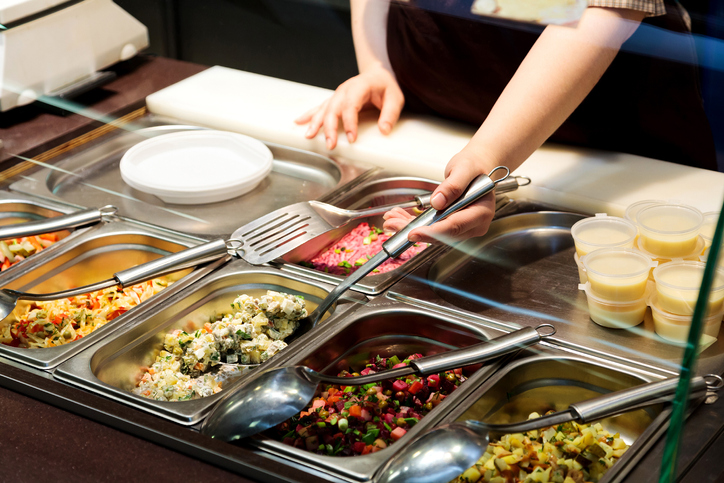ii view: caterer Compass returns to profit in Q4
Cost-cutting has aided recent performance, but with the dividend still off the menu, is it time to buy?
24th November 2020 11:35
by Keith Bowman from interactive investor
Cost-cutting has aided recent performance, but with the dividend still off the menu, is it time to buy?

Full-year results to 30 September
- Revenue down 19% to £20.2 billion
- Operating profit down 70% to £561 million
- No dividend payment
Chief executive Dominic Blakemore said:
"2020 was a challenging year for Compass. I am extremely proud of how the organisation responded to the pandemic. We began the year on track to deliver our strongest performance ever, and over the course of a fortnight in March, we saw the containment measures to stop the spread of Covid-19 close half of the business.
“Importantly, in the fourth quarter we returned the business to profitability and are now cash neutral. This was achieved mainly through contract renegotiations to reflect the difficult trading environment, continued discipline in terms of costs and some improvement in volumes.
“We are improving the quality of the business and will emerge from the pandemic stronger than we've ever been. We recognise the importance of the dividend to our shareholders and the Board looks forward to reinstating it when considered appropriate. Finally, we remain as excited as ever about the significant structural growth opportunities globally, the potential for further revenue and profit growth, and returns to shareholders over time. "
ii round-up:
Canteen provider Compass (LSE:CPG) reported a sharp drop in full-year profit as Covid-19 shut workplaces and schools in the spring, but has managed a return to profitability in the final quarter as it renegotiated contracts and slashed costs.
A 70% drop in annual operating profit to £561 million beat City forecasts for a fall down closer to £545 million, while a 34% slump in fourth quarter sales marked an improvement from a 44% retreat in the third quarter, aided by the return of education outlets in the new school year.
Compass shares rose by 5% in UK trading, bringing their year-to-date fall to around a quarter. Shares for French catering rival Sodexo (EURONEXT:SW) are down by around 30% year-to-date.
Compass, which employs over half a million people, operates across sectors including business and industry, healthcare, education, and defence and offshore.
New business wins, a reopening of some industry customers and a client retention rate of 96.4% aided its biggest division by revenue, North America. In Europe, a strong showing for healthcare and senior customers helped to offset some of the Covid impact elsewhere, while exposure to defence and offshore & remote sectors gave some support to its Rest of the World division.
Significant Covid disruption left the underlying operating profit margin for the year at 2.9%, down from last year’s 7.4%. Margin for the current first-quarter period is expected to come in at around 2.5%, with management committed to rebuilding it to above 7% before returning to pre-Covid-19 volumes.
The dividend payment remains suspended. A first-quarter trading update is scheduled for early February.
ii view:
Compass is generally viewed as both defensive and diverse. It typically serves over five billion meals per year across more than 40 countries. Business and industry account for its biggest customer segment, followed by healthcare and seniors and education. In more normal times, this mix of economically geared and defensive customer areas works well. But the pandemic means 2020 has been no normal year.
The closure of many of its canteens under Covid lockdowns and restrictions left Compass, like many companies earlier in 2020, looking to conserve cash. As such, it suspended the dividend payment in April, bringing an enviable record of 16 consecutive years of payment increases to an end. It also moved to raise £2 billion to strengthen the balance sheet and reduce debt.
For investors, the improvement in quarterly sales and return to profitability in the latest quarter offer hope. The bolstering of its finances and access to liquidity in the region of £5 billion also add to the positives. But the ongoing suspension of the dividend payment is disappointing, while the still highly uncertain Covid clouded outlook offers reason for caution. In all, and with the share price up by around 40% since late March lows, more cautious investors might decide to sit tight and monitor events.
Positives:
- Diversity of both customer and geographical location
- Strengthened balance sheet
Negatives:
- Food costs can be volatile
- Covid-19 could result in more staff permanently working from home
The average rating of stock market analysts:
Strong hold
These articles are provided for information purposes only. Occasionally, an opinion about whether to buy or sell a specific investment may be provided by third parties. The content is not intended to be a personal recommendation to buy or sell any financial instrument or product, or to adopt any investment strategy as it is not provided based on an assessment of your investing knowledge and experience, your financial situation or your investment objectives. The value of your investments, and the income derived from them, may go down as well as up. You may not get back all the money that you invest. The investments referred to in this article may not be suitable for all investors, and if in doubt, an investor should seek advice from a qualified investment adviser.
Full performance can be found on the company or index summary page on the interactive investor website. Simply click on the company's or index name highlighted in the article.